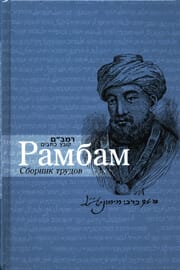Description
A guide to character development, Orchos Tzaddikim, written approximately 500 years ago by an anonymous author, is considered a classic among the timeless books of mussar.
~
Most of the book is not original writing; it is following the order of “The Improvement of the Moral Qualities” by Solomon ibn Gabirol, adding paragraphs from many of Maimonides’ works, and ideas from the famous ethical writings “Shaarei Tshuva” (by Rabbenu Yona of Gerona) and Chovot HaLevavot.
The Orḥot Ẓaddiḳim, which was designed to be a very popular code of ethics, contains the following maxims among others:
- “It is evil pride to despise others, and to regard one’s own opinion as the best, since such an attitude bars progress, while egotism increases bitterness toward others and decreases thine own capability of improvement” (ch. i.).
- “Be just and modest in association with others, and practice humility even toward the members of the household, toward the poor, and toward dependents. The more property thou hast, the greater should be thy humility, and thy honor and beneficence toward mankind” (ch. ii.).
- “Be kind to thy non-Jewish servants; make not their burdens heavy, nor treat them scornfully with contemptuous words or blows” (ch. viii.).
- “Forget not the good qualities thou lackest, and note thy faults; but forget the good that thou hast done, and the injuries thou hast received” (ch. xx.).
- “Abash not him who hath a bodily blemish, or in whose family there is some stain. If one hath done evil and repented, name not his deed in his presence, even in jest, nor refer to a quarrel which has been ended, lest the dead embers be rekindled” (ch. xxi.).
In ch. xxvii. the author bitterly attacks the pilpul method of study, reproves his countrymen who engage in this method of Talmud study, and reproaches those who neglect the study of the Bible and of all sciences.
Publisher: F.R.E.E. Publishing House
Format: 6 x 9, 288 pages, hardcover.
ISBN: 978-086639-070-5
Language: Russian
Only logged in customers who have purchased this product may leave a review.

![Ways of the Righteous ~ Orchos Tzaddikim [Орхот цадиким – Пути праведных]](https://e9dtcjviczt.exactdn.com/wp-content/uploads/2022/10/82.png?strip=all&lossy=1&ssl=1)
![Ways of the Righteous ~ Orchos Tzaddikim [Орхот цадиким – Пути праведных] - Image 2](https://e9dtcjviczt.exactdn.com/wp-content/uploads/2022/10/81.png?strip=all&lossy=1&ssl=1)
![Ways of the Righteous ~ Orchos Tzaddikim [Орхот цадиким – Пути праведных]](https://e9dtcjviczt.exactdn.com/wp-content/uploads/2022/10/82.png?strip=all&lossy=1&resize=100%2C100&ssl=1)
![Ways of the Righteous ~ Orchos Tzaddikim [Орхот цадиким – Пути праведных] - Image 2](https://e9dtcjviczt.exactdn.com/wp-content/uploads/2022/10/81.png?strip=all&lossy=1&resize=100%2C100&ssl=1)










Reviews
There are no reviews yet.